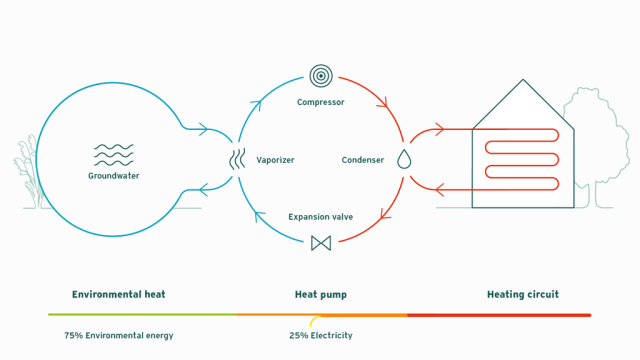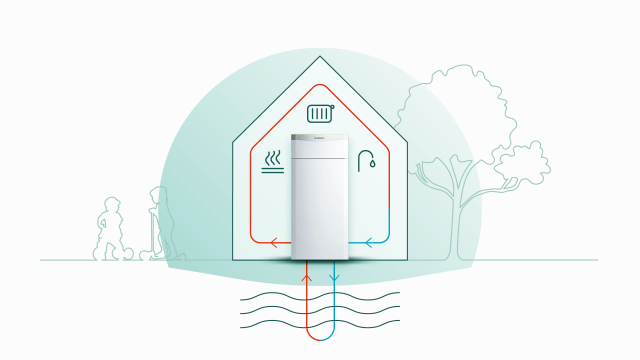Water source heat pumps work by extracting heat from a body of water and turning this into energy that can be used to heat your home and supply you with hot water. As heat transfers better in water, homeowners typically find that they are more efficient than ground and air source pumps.
They are an ideal way to reduce the environmental footprint of your home, especially compared to traditional boilers that rely on fossil fuels such as gas to operate.




